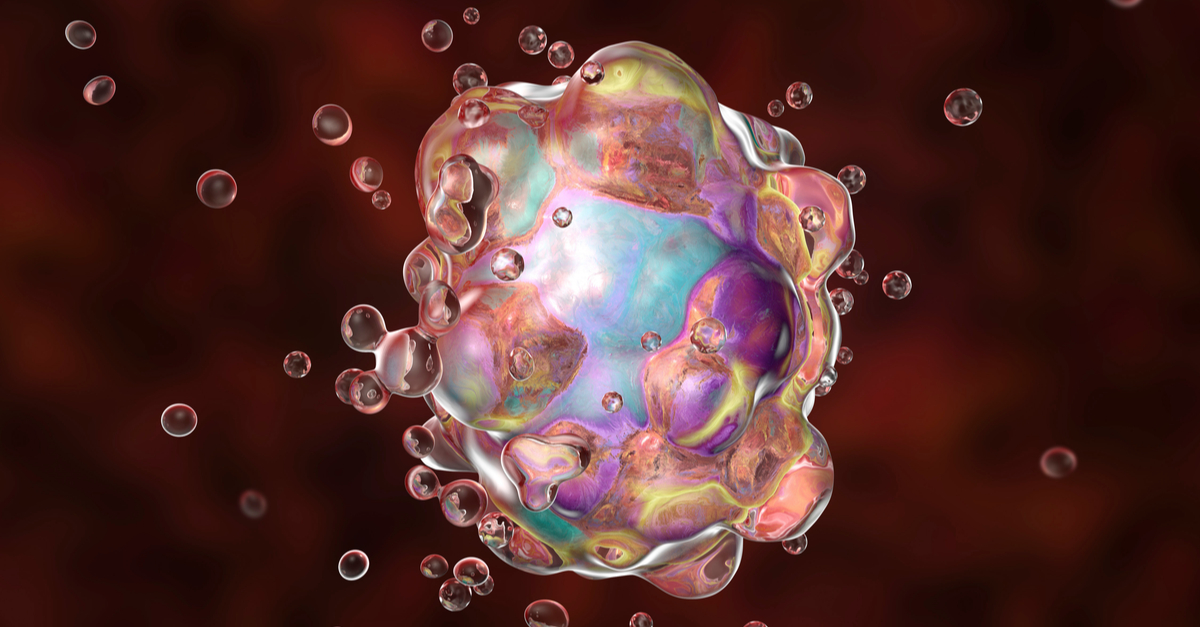
AUTHORS
Patricia P. Yee, Yiju Wei, Soo-Yeon Kim, Tong Lu, Stephen Y. Chih, Cynthia Lawson, Miaolu Tang, Zhijun Liu, Benjamin Anderson, Krishnamoorthy Thamburaj, Megan M. Young, Dawit G. Aregawi, Michael J. Glantz, Brad E. Zacharia, Charles S. Specht, Hong-Gang Wang & Wei Li.
SUMMARY
Tumor necrosis commonly exists and predicts poor prognoses in many cancers. Although it is thought to result from chronic ischemia, the underlying nature and mechanisms driving the involved cell death remain obscure. Here, we show that necrosis in glioblastoma (GBM) involves neutrophil-triggered ferroptosis. In a hyperactivated transcriptional coactivator with PDZ-binding motif-driven GBM mouse model, neutrophils coincide with necrosis temporally and spatially. Neutrophil depletion dampens necrosis. Neutrophils isolated from mouse brain tumors kill cocultured tumor cells. Mechanistically, neutrophils induce iron-dependent accumulation of lipid peroxides within tumor cells by transferring myeloperoxidase-containing granules into tumor cells. Inhibition or depletion of myeloperoxidase suppresses neutrophil-induced tumor cell cytotoxicity. Intratumoral glutathione peroxidase 4 overexpression or acyl-CoA synthetase long chain family member 4 depletion diminishes necrosis and aggressiveness of tumors. Furthermore, analyses of human GBMs support that neutrophils and ferroptosis are associated with necrosis and predict poor survival. Thus, our study identifies ferroptosis as the underlying nature of necrosis in GBMs and reveals a pro-tumorigenic role of ferroptosis. Together, we propose that certain tumor damage(s) occurring during early tumor progression (i.e. ischemia) recruits neutrophils to the site of tissue damage and thereby results in a positive feedback loop, amplifying GBM necrosis development to its fullest extent.
REFERENCES
Yee, P.P., Wei, Y., Kim, SY. et al. Neutrophil-induced ferroptosis promotes tumor necrosis in glioblastoma progression. Nat Commun 11, 5424 (2020). https://doi.org/10.1038/s41467-020-19193-y
PRODUCT HIGHLIGHTS
The following Bio X Cell in vivo monoclonal antibodies were featured in the publication:
